 Post an Event
Post an Event
| TILLAMOOK COUNTY FAIR - 100 YEARS OF PIG N'FORD |
| Wednesday, August 6, 2025 at 10:00 am |
| The Tillamook County Fair received its recognition as one of the top ten Blue Ribbon Fairs in the nation due to its uniqueness; offering so much for fairgoers to enjoy free along with their paid admission. Fairgoers can enjoy all of the Open Class and 4-H/FFA exhibits that Tillamook County residents have prepared the year prior, free entertainment and concerts, live exotic animal displays, and a whole lot more!
FOR MORE INFORMATION
tillamookfairoffice@gmail.com
(M-F, 8 AM-5 PM) at (503) 842-2272.
Reminders:
NO OUTSIDE FOOD OR DRINK
All bags are subject to search
For the safety of all present, only trained service animals are permitted to enter Fairgrounds property. A trained service animal is any guide dog, signal dog, or other animal individually trained to do work or perform tasks for people with disabilities. |
| 4603 East 3rd Street
Tillamook, OR, 97141 |
Legislators with no business experience lack insight to change the trajectory
Senator Kim Thatcher’s 2025 End-of-Session
Newsletter lays out the session’s affect on Oregon’s businesses.
Back when Republicans held greater influence in the Legislature—particularly in the early 2000s—Oregon ranked in the top half of states for business climate, with a reputation for innovation, low regulatory burden, and a competitive tax structure.
Today, Oregon ranks a dismal
44th in the nation in Chief Executive’s 2025 Best & Worst States for Business—beating out only Washington, New Jersey, Massachusetts, Illinois, New York, and California. That’s down from 43rd in 2024 and 36th in 2023.
According to the
Oregon Business & Industry Competitiveness Index, the state now ranks in the bottom tier for:
- Tax burden
- Regulatory complexity
- Workforce availability
The consequences are real. A
University of Oregon study commissioned by Business Oregon found that Oregon has lost thousands of jobs and billions in private investment over the past five years, with up to $3 billion in capital flowing to other states. Nearly a quarter of surveyed businesses reported being approached by out-of-state recruiters—and 68% of those either moved or expanded elsewhere. The study warns that unless Oregon improves its business climate, the exodus will continue.
Oregon has lost major employers like Precision Castparts, Daimler Trucks, and Dutch Bros, which recently moved its headquarters to Arizona, citing the state’s “toxic environment” for job creators. Here’s a look at just a few of the businesses that have left or scaled back since the early 2000s—and what they took with them:
- Dutch Bros – Moved HQ to Phoenix; Oregon lost access to over $1.28 billion in annual revenue and countless regional jobs
- Tektronix – Relocated HQ to North Carolina; once Oregon’s largest private employer
- Jeld-Wen – Closed its Chiloquin plant (128 jobs lost) and moved HQ out of state
- Columbia Sportswear – Bypassed Oregon, investing $4 million and 175 new jobs in Kentucky
- REI, Keen, and Adobe – Downsized or left the Portland metro area entirely (state-level job and revenue loss data is currently unavailable)
- Vacasa and Radius Recycling – Acquired by out-of-state firms, bringing uncertainty to Oregon operations
- Portland’s commercial sector – Hit a 35% vacancy rate; major downtown spaces now dubbed “ghost towers”
- Nike – Announced layoffs of approximately 740 employees at its Beaverton HQ in early 2025
- Intel – Oregon’s largest private employer, will lay off 15% to 20% of its factory workforce starting mid-July, affecting thousands of working Oregonians.
As Senate Republican Leader Daniel Bonham put it: “At some point, this stops being bad luck and starts being a pattern. Oregon is stuck in a doom loop of bloated bureaucracy, endless regulations, one of the highest tax burdens in the nation, and leadership that drives businesses away instead of attracting them.”
Unfortunately, some policies passed this session will set Oregon further back—especially for job creators and housing sector.
SB 916, awaits the Governor's signature, pays Unemployment Benefits for Striking Workers. This bill allows public and private employees to collect unemployment benefits while on strike—a move that many believe:
- Undermines the very purpose of striking (which carries personal economic risk)
- Adds pressure to Oregon’s $6.4 billion Unemployment Insurance Trust Fund
- Encourages longer and more frequent walkouts.
This sets a ridiculous precedent for Oregon’s fiscal sustainability and economic reliability.
SB 426, signed into law, affects General Contractor and Property Owner Liability by:
- Holding general contractors and even property owners liable if subcontractors fail to pay their workers
- Creating a “rebuttable presumption” that all laborers are employees unless proven otherwise
- Prohibiting exemption even if the contractor has already paid the subcontractor in full
- Creating a shocking shift in responsibility for those who follow the rules—while those who don’t are rewarded with a second check from someone else’s pocket
- Exempting subcontractors who most often fail to pay their workers are labor contractors who are not required to register with the Construction Contractors Board (CCB).
Senator Thatcher introduced
SB 1200, which would have required labor contractors working on construction projects to register with the CCB—opening up avenues of redress through administrative law when there are complaints of wrongdoing.
A D V E R T I S E M E N T

A D V E R T I S E M E N T
Senate Republican Leader Daniel Bonham states:
“Oregon’s anti-business climate, high taxes, and housing restrictions... are strangling opportunity. It’s not a lack of money. It’s a lack of leadership.”
Rep. Dwayne Yunker didn’t mince words either: “Democrats have taxed, regulated, and micromanaged this state into decline—and now they want to point the finger at Washington. Give me a break… Oregon’s job creators are heading for the exits. And who can blame them? The high tax burden, endless red tape, and uncertainty from Salem have made Oregon one of the least business-friendly states in the nation.”
Thatcher wrote, “This isn’t about partisanship—it’s about competence. When lawmakers with no business background pass laws that punish responsible contractors or reward striking workers with unemployment benefits, it’s not just misguided—it’s reckless
“Legislators creating economic policy without business experience is like a chef designing a menu without ever having cooked a meal—they may dream up delicious ideas but lack the practical know-how to make them a reality.
“So why are we continually choosing people with no business experience to write the rules for Oregon’s economy? Does this sound like a smart or practical way in which to govern our society? Do you call a plumber when you need your car fixed? Well, that’s just stupid and poor leadership if you really think about doing things right and what’s best for Oregon. This certainly isn’t the Oregon way I know.”
--Donna Bleiler| Post Date: 2025-07-05 13:17:42 | Last Update: 2025-07-05 01:41:33 |
Francis Scott Key remembered for his love of poetry
Francis Scott Key, a successful Washington DC lawyer, was a deeply religious man, and at one time in his life considered giving up his law practice to enter the ministry. Because of his religious beliefs, Key was strongly opposed to the decision to go to war in 1812. But his deep love for this country overrode that decision and he served for a brief time in 1813, But his greatest service to the war effort came in 1814.
A prominent Washington physician, Dr. William Beanes was taken prisoner because he wouldn’t stand for the immoral act of British soldiers harassing women. The British had captured Washington on August 24, 1814. and Key was asked to go with Colonel John Skinner to negotiate his release aboard the British flagship HMS Tonnant.
As the negotiations took place, the Battle of Baltimore began, but not without delay. Major General Robert Ross, the British Army officer in command of the British forces in North America was MIA, leaving the flagship without orders to coordinate the fleet. It was Henry and William, a couple of boys, 18 and 19 years old that delayed the attack by shooting the British Major General Ross, which gave Fort McHenry long enough to prepare for the battle.
The three Americans were kept on board in the harbor, and from a distance of approximately eight miles, watched for 25 hours the bombardment on Fort McHenry before the British finally retreated. As dawn came, Key scanned the sky for a sign of what happened overnight. To his surprise and relief, the American flag was still flying! Overjoyed, he often memorialized these moments in poetry, he quickly documented this moment in a poem calling it “The Defence of Fort McHenry.”
A D V E R T I S E M E N T

A D V E R T I S E M E N T
The first stanza of Key’s poem is well-known to Americans as the lyrics to the national anthem, “The Star-Spangled Banner.” It's hard to sing, nearly two octaves high, and it’s hard to memorize. The song represents the hard battle Key saw and relief he felt to see the flag still flying. We still sing his words representing the hard struggles America has had to keep the freedoms the flag represents.
We stand when the song is sung to honor all those that have died to make America free, we stand because that’s the least we can do to honor those who serve, and we stand committed to keep America free! Stand Up in honor of this Marine singing what Key penned as our destiny in the second verse of the Star Spangled Banner!
Enjoy this July 4th and
learn the second verse of the Star Spangled Banner It says so much about the ever pursuing fight for freedom.
--Donna Bleiler| Post Date: 2025-07-04 18:03:33 | Last Update: 2025-07-05 00:23:37 |
Recall highlights growing dissatisfaction of conservative voters
On June 26, 2025, the North Coast Recall 2025 committee launched a recall petition against State Representative Cyrus Javadi, District 32 (Tillamook - Clatskanie). The petition was approved for circulation giving them 90 days to collect 5,417 signatures to force a recall election. The petition cites three key legislative votes as evidence of Javadi’s disconnect from his constituents, and the basis for the recall accusing him of losing touch with the district’s conservative values.
Javadi's vote for
SB 1098, which prohibits discrimination in the selection or retention of school library materials, aims to protect explicit content from being censored based on race, gender, or other characteristics. Javadi views this as a way to ensure access to a broad range of educational materials. Petitioners argue that SB 1098 “makes it impossible to remove pornography from schools, and it undermines parental rights and exposes children to inappropriate content. So inappropriate that it was stopped from being read on the house floor.”
“He voted to honor black drag queens who disgustingly pranced and twerked on the House floor prior to voting on
HR 3. This was a national embarrassment. He was one of two House Republicans who stayed on the floor to applaud the show. He needs to either resign or clarify his position to his constituents before he makes these kinds of decisions on our behalf.” Javadi defends his vote by highlighting inclusivity and First Amendment rights. His position on this resolution is not sitting well with many conservative Republican voters in District 32.
“Javadi also voted yes for the Christmas Tree Bill (
HB 5006), which is a pork-filled Bill that allows certain legislators to fund many pages of questionable projects around the state like art museums, festivals, and a mega restaurant in Portland. Many of the projects benefit Portland at our expense. No matter how Javadi tries to spin and justify his votes, the effects of them show he’s clearly out of touch with our conservative community's moral order and values. HB5006 is fiscally irresponsible and we deserve transparency when it comes to spending our money. But according to him, “It’s worth it”.”
The recall campaign against Cyrus Javadi highlights a fast-growing dissatisfaction rooted in his votes on SB 1098, HR 3, and HB 5006. His decisions have exposed a divide between his moderate stance and the conservative expectations of many constituents, driving a determined effort to hold him accountable. The campaign’s outcome will depend on how effectively this frustration translates into action and how Javadi responds to the mounting criticism. Petitioners are demanding stricter adherence to conservative principles. His decision to stay and vote during Republican walkouts in Salem, rather than join the protest, has further fueled criticism from Republicans across the state.
A D V E R T I S E M E N T

A D V E R T I S E M E N T
The “North Coast Recall 2025” committee must gather the 5,417 valid signatures by late September to trigger a recall election. The success of this effort depends on mobilizing enough voters who share the sentiment that Javadi’s actions reflect a broader appeal.
A Facebook page,
Recall Javadi Dist 32 (Northcoast), is dedicated to the effort where supporters can learn how to assist, and find a link to the North Coast Recall 2025 web page. The web page will include information on how to find and sign the petition, or how to assist.
If you have any questions, contact Christopher Mann; chrismannomsn@gmail.com.
--Katrina Nelson| Post Date: 2025-07-04 16:55:42 | Last Update: 2025-07-05 00:27:44 |
Oregonian’s escaped a massive transportation tax hike but the battle isn’t over
Oregon legislature adjourns sine die this evening. It signifies the legislative body has concluded its meeting without setting a day or time to reconvene. It literally means to adjourn “without a day.” For lawmakers, it signifies "time to go home." A sine die adjournment has significant ramifications for the life of legislation. It means that all active bills not yet enacted die with it and would need to be reintroduced in the next legislative session and start the entire legislative process over. It is the hope of many that we never see a legislative session like this again, and hope voters remember the effects of what has transpired the past five months.
House Speaker Julie Fahey (D-Eugene) and Senate President Rob Wagner (D-Lake Oswego) released the following statements:
"This session, we focused on practical, bipartisan solutions to the challenges Oregonians face every day — from lowering the cost of living to expanding access to health care, housing, and public safety. We protected core services in a tough budget year, found common ground on
complex issues, and made sure the work happening inside the Capitol reflected the values and priorities of people across the state," Speaker Fahey said. "It wasn’t always easy — but we stayed focused, we stayed collaborative, and by in large, we delivered."
Most Oregonians recognize that this statement would not pass fact checking. They adjourned early because Democrat leadership was loosing their constituents and they couldn't afford to push their agenda any further. Left on the table was
HB 3390, which would have allowed the legislature to write their own ballot titles. If Fahey's statement is an example of a ballot title, it has mal-information written all over it.
Most importantly,
HB 2025, the billion dollar tax bill was left on the table for a special session. They didn't have the votes from the majority to pass it, and Fahey calls that bipartisan solutions, with zero Republicans support.
To finish the session, Democrats passed the very controversial gun bill,
SB 243 that leaves all gun owners wondering where and if they can legally carry. Never mind cartel residents, they live by their own rules. Out of 2,390 testimonies 206 supported the bill. That's 2,184 opposed. That's Fahey's idea of finding common ground. This was not an outlier. It was the norm for all the controversial bills.
What they call as making Oregon more affordable is
HB 3940, taxing nicotine products to fund fire protection, or
HB 2803, increasing water fees. They extended three taxes on forest products in
HB 2072, and
SB 916 will put schools in a bind to pay unemployment benefits to striking employees. This is only a taste of what Fahey refers to as their successful delivery.
A D V E R T I S E M E N T

A D V E R T I S E M E N T
President Wagner said, "We did a lot to help the people of Oregon this session and we did it by seeking common solutions to the challenges we face. I'm proud of my fellow legislators and I look forward to continuing our work that remains unfinished." He is referring to a special session after they convince their colleges to pass the transportation billion dollar tax bill. Will they consider the House Republicans' bill,
HB 3982, which preserves operations and maintenance that are key to core functions of ODOT, especially in rural Oregon, such as plowing roads and filling potholes. The bill stabilizes ODOT and avoids raising taxes and the cost of living.
Watch for "unfinished business" that was left on the table such as: a swipe at the kicker, passing a statewide property tax, increase on income tax, raising taxes based on inflation, and they won't quite pursuing stricter rules on owning guns until there are no rights. And then there is the I-5 bridge. The short session will be very intense.
House Republican Minority Leader Christine Drazan (R-Canby) said of the session “House Republicans have relentlessly focused on addressing the needs of everyday Oregonians and their families who are overwhelmed by the cost of living and frustrated by never-ending tax hikes. Forcing families to pay one of the largest tax hikes in history when they can barely get by was a cruel policy from the start. While our work represents a major victory for working-class, low-income, and rural communities, House Republicans will continue to listen to and fight on behalf of Oregonians against any future taxes that raise the cost of living. We welcome House Democrats to join us.”
Basing the whole session on a final hour win is all Republicans have to show. It's big, but they put aside strategy that would have saved Oregonians from a lot other taxing bills plus protecting gun rights. It isn't that Republicans won, the Democrats lost their own party votes. Republicans seemed to be floundering for leadership the whole session leaving Republicans without direction.
--Donna Bleiler| Post Date: 2025-07-04 13:37:21 | Last Update: 2025-07-05 00:24:32 |
Legislature overrides Governor’s veto to keep foster youth in Oregon
Democrat votes were key in telling Governor Tina Kotek they won't allow her to veto protections for foster youth. By overriding her veto on
Senate Bill 875, the sponsors see this bill as correcting miss treatment of youth in foster care.
Emily Cooper, Disability Rights Oregon, testified that they filed a class action lawsuit in 2019 due to actions that took rights from foster youth. She identifies two critical things that SB 875 does:
- Section one and five, it makes clear that foster youth will have access to their current and future siblings unless a Court enters an order that such contact be limited due to safety concerns. One of the greatest sources of grief and separation anxiety from foster youth, is the lack of contact with their siblings. SB 875 allows those relationships to continue when safe and appropriate.
- Section three, expressly includes other legal rights youth currently have regarding to be free from inappropriate seclusion and restraint, confidential access to their attorney, freedom of religion, and to have their belongings move appropriately with them.
Governor Kotek said in ner veto memo, it was unclear why “this level of prescriptiveness” was needed in statute. Kotek claimed
HB 3835, which died in House committee, as her priority bill dealing with child welfare that would have allowed the state to send children in foster care to facilities in other states. It also changed the definitions around restraints and seclusions. This would reverse the move in 2020 to bring foster youth back to Oregon after abuse was found. Does Kotek really have the 5,000 foster youth in mind or HB 3835?
Senator Sara Gelser Blouin (D-Corvallis), chair of the Senate Human Services Committees, lead the fight against the Department of Human Services (DHS) to bring foster youth back to Oregon and improve in-state foster care. In 2023, the state paid $40 million to settle a lawsuit after four children were sexually and physically abused by their foster parents. “This is an agency under two federal court orders and who is bankrupting our state insurance fund with all these payouts for wrongful death and sexual abuse and civil rights violations,” Gelser Blouin said. DHS has since focused on developing in-state placements to ensure better oversight and care for foster youth. Gelser Blouin continues her commitment to keep Oregon’s youth here, and is probably the strongest advocate against HB 3835.
Annette Smith, a lawyer who represented youth sent out of state the first time around, told OPB, when you send children across state lines, they often lose whatever community and connections they have. “It makes it more difficult for people who love this child and care about this child to ensure their well-being on a daily basis.”
A D V E R T I S E M E N T

A D V E R T I S E M E N T
Now Kotek is advocating for her failed project “Preschool For All” program. Trying desperately to save public school enrollment, which took a drop after she signed SB 1098. To disguise it, she says the preschool for all program is not being filled and seats remain empty. There is $485 million in unspent funds combined with spotty implementation with only 11% potential licensed sites participating. Is this really the fault of disinterested facilities or an overregulated program? Kotek admits changes are needed. Perhaps the same scrutiny is needed for HB 3835.
--Donna Bleiler| Post Date: 2025-07-04 13:25:28 | Last Update: 2025-07-05 00:25:06 |
Statewide Wildfire Hazard Map repeals burdensome regulations
In the mist of the political games in Oregon, Democrats released
SB 83 for a floor vote hoping to mask the tax increases in the Transportation bill. SB 83, which repeals the costly and burdensome regulations imposed on communities by the Statewide Wildfire Hazard Map, goes to the Governor for signing.
Stuck in Ways and Means is
HB 3103. This bill tells the State Forester to see how much forestland there is. Then the State Forester is directed to make harvest levels for cutting timber on state forestland, and to manage state forestlands. It allows certain persons to seek an injunction if the State Forester fails to establish sustainable harvest levels or manage available state forestland.
The Trump Administration proposes to sell more than 2 million acres from a total of 258 million acres in the next five years. Proposal puts federal forests up for sale using wildfires as a pretext for fast-tracking logging proposals on up to 59% of U.S. Forest Service lands. This initiative aligns with an executive order from Trump that calls on federal agencies to dramatically increase timber harvests aimed at generating revenue and addressing the "housing crisis".
In the meantime, Zaugg Timber Solutions, a third generation run business in Rohrbach, Switzerland, entered into a long-term lease with the Port of Portland to develop a manufacturing site at Terminal 2. Zaugg is a manufacturer of engineered wood products and uses its own materials to build structures. Buildings are nearly completed at a Zaugg warehouse before leaving the factory. The company’s buildings expertise is around affordable modular and prefabricated mass timber elements are used to build homes and other structures. They will be able to produce around 700 manufactured homes a year. The company is also expected to hire 60 workers.
Where will Zaugg sell their homes?
HB 2258 is waiting the Governor’s signature, which requires local governments to approve certain land use applications for residential developments using building plans preapproved by the Department of Consumer and Business Services. The League of Oregon Cities, along with individual cities, oppose HB 2258 creating a one size fits all model for housing that doesn’t work. ”Oregon needs more housing, we need bills that significantly move the needle and work with our communities, HB 2258 is not one of them."
A D V E R T I S E M E N T

A D V E R T I S E M E N T
Spoiler alert. U.S. Senator Ron Wyden is proposing new national legislation targeting wildfire prevention in his National Prescribed Fire Act of 2025. The bill aims to reduce the risk of catastrophic wildfires by investing in hazardous fuels management. It seeks to accelerate and expand the use of prescribed burns during cooler, wetter months, develop a technically skilled prescribed fire workforce. “This is a major science driven bipartisan approach to preventing fire,” Wyden claims. However, not everyone agrees since lack of management of prescribed burns has been the source of major fires. Prescribed burns would also burn up the supply Zaugg is looking to use for their prefab wood.
--Donna Bleiler| Post Date: 2025-07-04 13:20:58 | Last Update: 2025-07-05 00:25:47 |
HB 3390 sets up the majority party to write ballot titles
Why would anyone care about
HB 3390? It has been stashed out of sight in the House Rules Committee since January, with all the other bills expected to die there.
Then, suddenly on June 18, Speaker Julie Fahey (D-W Eugene), who isn't a member of the committee, used her majority power to resurrect the bill with a 'gut-and-stuff' changing it from a study bill to giving the legislature power to write their own ballot title. It surfaced in a public hearing that produced just 12 written testimonies on the amended bill.
Currently, the Attorney General determines ballot titles for state measures. The Attorney General is responsible for ensuring that the ballot title accurately reflects the measure's purpose and is clear to voters. HB 3390-2 allows the Legislature to write the ballot title, the explanatory statement, and the legislative statement in support for every referral and every referendum stemming from the 2025 session. Further, HB 3390-2 requires that any committee of legislators writing ballot titles and/or explanatory statements must be comprised of 2/3rds members from the majority party in each chamber, minimizing the voice of the minority party overriding any objection.
Stacey Holeman writes, "... from where I sit the system already in place seems more impartial and makes more sense than handing the tasks to the legislature. That makes this bill feel like a power grab to me ..."
Even INDIVISIBLE, a far left political organization said, "... Replacing these processes with the Legislature writing its own ballot titles and explanatory statements would remove impartiality and thus place accuracy into question."
Others wrote: "The Legislature would have a very strong incentive to favorably portray the measures it places on the ballot and to criticize any referendum that challenges a statute it has enacted. This can only erode the confidence of voters in the accuracy and impartiality of these statements in the Voters’ Pamphlet–-and on the ballot itself ..."
So, what's at risk for the current supermajority to try to push through this unfair foundation for controlling what the citizens know about a bill? Every poor piece of legislation passed in 2025 that will be referred to the ballot, like HB 2025, the draconian transportation tax bill, will have a biased title, explanation and legislative statement to get the outcome they desire. According to the Secretary of State, passed in 2021, this is "mal-information" subject to $10,000 fine for spreading false election information. Voters will be lied to again, and again and again.
A D V E R T I S E M E N T

A D V E R T I S E M E N T
To make sure there is no opposition from Oregonians, Speaker Fahey added an emergency clause. Voters used to be able to challenge poor legislation that passed the legislature by a veto referendum. However, an emergency clause can be added at the option of the sponsor, even if there is no emergency declared by the governor. It restricts voters from filing a veto referendum on bills that have an emergency clause, which leaves us ... powerless.
HB 3390 was left in committee upon adjournment.
--Virginia Hall| Post Date: 2025-07-01 13:00:25 | Last Update: 2025-07-01 17:59:35 |
Citizens just lost the right to vote on utility rate increases
Your right to vote on utility rates just vanished with the stroke of a pen.
The Legislature, in passing
SB 1062 has quietly stripped voters of their authority in three cities to approve utility rate increases, transferring that power directly to mayors and city councils. The legislation effectively overrides voter initiatives that had previously secured this authority within city charters.
Two Republican Senators, Anderson and Wright, spearheaded this significant change by sponsoring
SB 1062. This bill limits voters' right to choose, effectively betraying constituents in three specific cities: Bandon, North Bend, and Reedsport. Their action represents more than a procedural adjustment. It alters the balance of power between the voters and local government officials.
The state legislature's vote to approve this bill, which has a Democratic majority, was ironic because it represented an apparent attempt to circumvent established democratic processes.
The Players
The city officials of the three cities mentioned in the bill initiated the political play to discreetly remove voter authority without them having to follow any election requirement of sending a local notice to the voters. They knew they would never get the voters to give up their rate-setting authority, so they had Senator Anderson and Senator Wright do the dirty work. Officials from all three cities colluded with the local state senator and state rep to secure that authority through legislation, which some believe is validated in their testimonies on the bill.
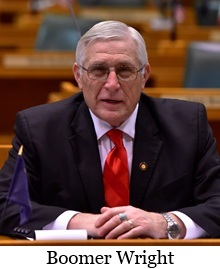
In an excerpt from
testimony in favor of
SB 1062 written by the Mayor of Bandon, Mary Schamerhorn, she made promises assuring the legislators and voters the city officials would not abuse their authority when that was the reason the voters passed the City's rate-setting amendment in the first place.
"Senate Bill 1062 offers a thoughtful, targeted solution by restoring this critical authority to the cities of Bandon, North Bend, and Reedsport. If passed, our City Council is committed to ensuring that any future rate adjustments are based on objective, data-driven methodologies, supported by transparent and empirical cost analyses to justify the need and scale of such changes."
The City Manager of Reedsport Deanna Schafer complains about the City's electorate and how they have constrained the City in her
testimony on the bill.
"The City of Reedsport has been operating under the constraints of a citizen-initiated City Charter amendment that says that any creation or increase in any tax or public utility rate, shall not be effective unless ratified by a majority of the City's qualified electors who cast a ballot (May 2012). To compound the issue, the City had not had a water rate increase since 2006."
North Bend City Administrator David Milliron complains about the voters and then
attempts to claim that
SB 1062 will restore local authority. The voters of North Bend might think they were the locals and their vote was the authority.
"Why are we stuck? A 2020 charter change—passed by a simple majority—now demands a double-majority of all voters before the council can raise sanitary-sewer rates at all, and it caps any hike at the Social Security COLA—currently at 2.5 percent. One sentence wiped out the state-granted duty you gave us to keep this regulated utility safe. SB 1062 A is the narrow fix. It restores local authority—nothing more—for three coastal cities, costs the state nothing, and leaves every councilor fully answerable at the ballot box. With that power our governing body will move in clear, planned steps—so families can budget and our bay can stay clean."
Maybe Milliron should have made that passionate plea to the voters during the election, and the City would not have suffered from voters who had lost trust in the local authorities.
The Power Shift
Supporters of this legislation might argue that elected officials already represent voter interests, which was the argument made by the North Bend City Administrator, but it has not passed scrutiny.
When a charter requires direct voter approval for rate increases, utilities must make their case to every city voter. They must demonstrate genuine need and reasonable pricing. Without this check, the path of least resistance often leads to higher rates with less justification.
When all levels of government waste taxpayers' money, there must be political mechanisms of legal restraint the people can foist on authorities to check the balance of power. The reason the voters might reject a rate increase is due to the city’s spending habits in other areas. The people have a right to require fiscal responsibility.
The shift away from voter approval also removes a crucial transparency mechanism. Rate hearings before city councils typically receive minimal public attention, while ballot measures force broader public engagement and media coverage.
The Larger Pattern
This legislative action reflects a broader trend in both major parties of consolidating power away from direct democratic processes recognized in the state constitution. State legislators are willing to modify the locally established process by overriding local charter provisions established through public initiatives.
These policies give utility rate-setting authority to city voters but do not oppose our Constitutional Republic, where the federal system enacts law through the people's representatives. These mechanisms were complex to enact by average citizens who campaigned on the people's right to choose their style of government in their cities and counties under the authority of the State and the US Constitution. Oregon has a long tradition of voter-approved initiatives, demonstrating the state's unique respect for the people's right to choose where their authority resides.
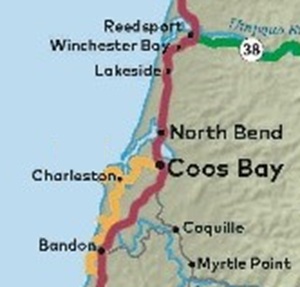
Citizens should ask the simple question:
If utility rates do not require voter approval, what other local decisions will the legislators remove from public oversight?
The charter provisions requiring voter approval for rate increases for these three cities did not materialize by accident. A group of concerned citizens established those charters, and now their work was for naught. They recognized the potential for abuse when essential service pricing fell under the exclusive control of a small group of officials.
What Happens Next?
Bandon, North Bend, and Reedsport will immediately feel the impact after the governor has signed this legislation. City councils will gain unilateral authority to set utility rates without voter approval.
The longer-term consequences may include higher utility costs, decreased transparency in rate-setting processes, and further erosion of direct democratic participation in a local government's decision-making authority.
Citizens concerned about this shift should recognize the severe consequences of losing a direct voice in decisions that affect essential services and household budgets. The transfer of authority from voters to officials represents more than a procedural change. It alters the relationship between citizens and local government.
When politicians take away your vote on utility rates, they change who makes decisions and who those decisions ultimately serve.
--Rob Taylor| Post Date: 2025-06-20 16:12:58 | Last Update: 2025-06-21 13:56:19 |
Oregon’s voter rolls contain large numbers of old or inactive registrations
Flag-waving patriots gathered at the U.S. Courthouse in Eugene on Wednesday morning to draw attention to the Judicial Watch lawsuit against the State of Oregon,
Civil Action No. 6:24-cv-1783. Inside the courthouse, U.S. District Judge Michael McShane, heard the State's motion to dismiss and will make his decision in the the next two weeks.
Citizens of many counties joined in support of this highly visible election case, Constitutionally, administration of voter rolls must be based on "clean voter rolls". Judicial Watch alleges that Oregon has one of the worst voting lists in the country because the Secretary of State and the State of Oregon have failed to "conduct a general program that requires a reasonable effort to remove the names of ineligible voters who have died or changed residence from voter rolls."
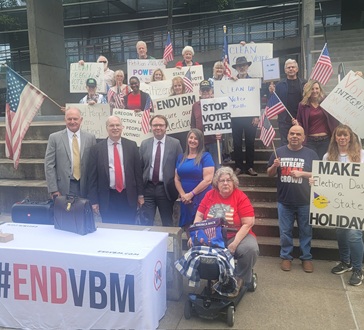
Judicial Watch lawsuits and legal actions under the National Voter Registration Act (NVRA) have resulted in the removal of five million names from voter rolls in nearly a dozen states over the last several years.
In its complaint, Judicial Watch argues that Oregon’s voter rolls contain large numbers of old or inactive registrations, and that 29 of Oregon’s 36 counties removed few or no registrations in compliance with federal election laws. Judicial Watch also asserts that "Oregon and 35 of its counties had overall registration rates exceeding 100%" (of the voting age population); "and that Oregon has the highest known inactive registration rate of any state in the nation." More information is available in their press release
here.
Federal law states that names be removed from the rolls, but Oregon law states names are cancelled. On June 6, 2025, the US DOJ submitted a
supporting document saying, "the United States has a substantial interest in ensuring proper interpretation of the NVRA. The United States submits this Statement of Interest for the limited purpose of addressing the requirements under the NVRA for states to maintain and make available for public inspection certain records concerning the implementation of programs and activities conducted for the purpose of ensuring the accuracy and currency of official lists of eligible voters".
As a result of independent research, 733,488 registrations were found listed as inactive on Jan 8, 2025. Most often, this condition is a result of a challenge by county elections personnel because of unsigned ballot envelopes or signatures that don't match what's on file. These ballots cannot be counted until all discrepancies are resolved. Registrations can be made active again by correcting the problem with their county clerk. Unfortunately, these inactive voters will not be mailed a ballot for the next election.
A D V E R T I S E M E N T

A D V E R T I S E M E N T
Citizens are fed up with voter rolls that look mostly inaccurate. They are taking issue with registrations of non-citizens, registrations at addresses where the voter died (current record is 8 years ago), registrations of persons that moved out of the county or state, and registrations with addresses where no one by that name has ever lived in the neighborhood. The voter rolls also appear to contain duplicates with the same exact name or slightly different names. With only digital records of voters, the possibilities for fraud and illegal
registration attempts are unlimited.
In other states, it has been noted that after a Judicial Watch voter roll lawsuit and names have been removed from the lists, new registrations quickly reappeared to match or exceed the original level of registrants. Expert, Dr. Douglas Frank, has been
watching voter rolls for years, and is watching this case closely for similar results.
--Virginia Hall| Post Date: 2025-06-20 12:16:31 | Last Update: 2025-06-20 18:40:42 |
The enforcement operation saved hundreds of thousands of lives
On the evening of June 13, 2025, troopers from the Oregon State Police Drug Enforcement Section and Mobile Response Teams partnered with the Clackamas County Interagency Task Force (CCITF) and Linn County Interagency Narcotics Enforcement Team (LINE) for a targeted mission in downtown Portland aimed at disrupting illegal drug activity.
The enforcement effort focused on street-level dealers in Portland’s Old Town neighborhood. In total, the teams made five arrests on charges related to distributing and possessing controlled substances, as well as firearms-related offenses.
During the three-hour operation, officers seized 60.3 grams of methamphetamine, 11.7 grams of fentanyl, and 25 grams of Xanax pills. A privately made firearm, commonly referred to as a ghost gun, was also recovered. Just 2 milligrams of fentanyl is considered a potentially deadly dose, and 11.7 grams of fentanyl is equivalent to 11,700 milligrams, which potentially could have kill hundreds of thousands of people. Methamphetamine is a highly addictive stimulant that could have taken lives depending on their tolerance. Xanax (alprazolam) is a benzodiazepine and not as lethal, but can be at high doses.
Arrests and charges included:
- Michael Yarborough, 60: Distribution of a controlled substance
- Lawrence White, 51: Distribution of a controlled substance
- Willie Waller, 50: Distribution of a controlled substance, possession of methamphetamine, possession of a Schedule II substance
- Lawrence Serban, 54: Distribution of a controlled substance, possession of methamphetamine, possession of fentanyl
- Candrew Post, 24: Distribution of a controlled substance, felon in possession of a firearm, unlawful possession of a firearm
A D V E R T I S E M E N T

A D V E R T I S E M E N T
OSP Domestic Highway Enforcement Initiative The Oregon State Police-Domestic Highway Enforcement (OSP-DHE) Initiative is supported by the Oregon-Idaho High-Intensity Drug Trafficking Area (HIDTA).
The Oregon-Idaho HIDTA program is an Office of National Drug Control Policy (ONDCP) sponsored counterdrug grant program that coordinates with and provides funding resources to multi-agency drug enforcement initiatives, including the OSP-DHE Initiative.
--Donna Bleiler| Post Date: 2025-06-16 17:20:55 | Last Update: 2025-06-16 21:01:24 |
The Water War Between Endangered Species and Human Necessity
The Detroit Dam rarely made the headlines until it threatened to leave the tap dry.
Behind the seemingly routine dam management plans lies a complex battle of priorities with real consequences. For the City of Stayton, Oregon, the battle centers around the Detroit Dam drawdown project, which could intentionally compromise their drinking water supply.
A Critical Water System Under Threat
Stayton draws its drinking water from the North Santiam River, downstream from Detroit Dam. The city's water treatment facility uses Slow Sand Filters that operate effectively only when water turbidity remains below 10 NTU (Nephelometric Turbidity Units). The project creates a vulnerability that few residents realize exists.
Stayton officials raised alarm bells when the U.S. Army Corps of Engineers proposed a deep-water drawdown at Detroit Lake to improve fish passage for endangered salmon and steelhead possibly. Similar projects have produced turbidity levels reaching 2,700 NTU, rendering treatment facilities ineffective. Killing the fishing process. Currently, a typical historical drawdown occurs yearly.
Federal environmental mandates that protect endangered fish species conflict with the fundamental human need for clean drinking water.
In addition, predation pressure, particularly from growing sea lion populations, represents another critical variable often underemphasized in policy discussions. These natural predators can significantly impact salmon runs, creating a predator-prey imbalance that officials have overlooked in declining Salmon populations.
Lessons
It is not merely a theoretical concern. In 2024, a similar drawdown at Green Peter Reservoir created a cautionary tale that Stayton officials are watching closely.
The resulting turbidity severely damaged Lebanon, Sweet Home, and Albany water treatment systems. These communities are now
pursuing legal action against the Army Corps of Engineers for $37 million in damages, highlighting the real-world consequences of well-intentioned environmental projects implemented without adequate consideration for downstream water users.
What happened there could easily happen to Stayton.
A Complex System With Multiple Purposes
Detroit Lake represents one of the Willamette River basin's most significant reservoirs, with a storage capacity of 455,100 acre-feet behind a 463-foot dam. Its management has many priorities, including flood control, power generation, navigation, recreation, irrigation, and fish passage.
Each purpose comes with regulations and advocates. Yet drinking water—perhaps the most fundamental human need—sometimes gets lost in the bureaucratic shuffle.
The technical complexity of dam management often obscures the human impact of these decisions.
Temporary Relief and Ongoing Concerns
For now, Stayton has received a reprieve. USACE has postponed the planned fall 2025 drawdown, acknowledging the legitimate concerns raised by affected communities.
This delay provides breathing room but does not provide resolution. The Army Corps does not expect to complete a supplemental environmental impact statement until early 2026, meaning the fundamental tension remains unresolved.
The postponement shifts the timeline of a potential crisis rather than eliminating it.
Proactive Response From Local Leadership
Stayton officials are not waiting passively for federal agencies to determine the future of their water. They have launched a multi-faceted approach to protect their community's interests:
1. Forming coalitions with other affected communities to amplify their collective voice.
2. Engaging legal experts to explore litigation.
3. Meeting directly with USACE representatives to explain their concerns.
4. Implementing enhanced water quality monitoring systems.
5. Exploring infrastructure upgrades and emergency supply alternatives.
These efforts reflect a reality: When the government imposes larger environmental policies, people often fight to protect their interests.
The Dilemma
Stayton's situation illuminates a broader challenge facing American infrastructure. How do we balance environmental restoration with the reliability of essential services? The aging dam and water treatment infrastructure throughout the country create vulnerabilities that become apparent only when stressed by management changes or natural events.
Everything downstream from major dams exists in a precarious relationship with federal agencies, whose mandates may not prioritize municipal water supplies. The tension between environmental goals and human necessities represents more than a first to third-world luxury. It also demonstrates a devaluing leap in policy that promotes a changing value, exalting the lives of animals and plants over the lives of humans.
Moving Forward With Informed Vigilance
For Stayton residents, the message is clear. Stay informed and engaged. The city continues to provide updates through council meetings and other communications, encouraging citizens to understand the potential impacts on their water supply.
The temporary postponement of the Detroit Dam drawdown provides valuable planning time but does not eliminate the conflict between fish passage and water quality.
Many ask whether federal agencies can develop approaches that truly balance these competing priorities without forcing impossible choices on communities like Stayton.
Stayton City officials have
begun a campaign to ask citizens to contact their state and federal congressional representatives with their concerns. The city's website has different samples of letters for interested parties.
The Corp. of Engineers also
requests comment until June 21, concerning the more destructive "Deep" drawdowns versus the historically done normal drawdown to support fish species traveling up and down the rivers. Here is the Email for the Corp. of Engineers for public comments: Willamette.EIS@usace.army.mil.
--Rob Taylor| Post Date: 2025-06-15 14:32:53 | Last Update: 2025-06-15 16:27:41 |
Political and military deception covers up pseudo-science and a flawed premise
The Willamette Basin dams serve multiple purposes including hydropower production, flood risk management, irrigation and recreation reserves, and habitat for many species. However, U.S. Army Corps of Engineers (USACE) plans to once again disrupt water resources focused on Stayton and Salem in deep drawdown of Detroit Lake and removing flood control dams. Eye witness researchers have pictures of fish easily jumping flood control dams, which shows there is no need for the drawdown or removal. Eliminating the fish concern and that there is no backup for electricity, it seems the purpose is to force out farmers and rural businesses, and force residents onto wind and solar energy.
Best practices are known as superior results based on proven quality as an alternative to mandatory standards. In 2024, the USACE drew-down Green Peter Reservoir with disastrous results that didn't support best practices or any justification to continue drawdowns. The cities of Sweet Home, Lebanon, and Albany employed a coordinated effort to halt the drawdown, but not in time to avoid severe damages.
This week, the cities of Lebanon and Sweet Home in Linn County filed a tort claim against USACE, citing the increased sediment load that severely impacted the water treatment systems of both cities, leading to heightened operational costs, equipment damage, and the need for costly pretreatment system upgrades.
USACE has been doing routine drawdowns for many years without impact under an Environmental Impact Statements (EIS), until NOAA fisheries wanted to add to the EIS. What people didn’t realize is the intent to remove hydropower from 10-12 dams in the Willamette Basin, and eventually from many other rivers (Columbia and Snake).
The fight Klamath County had over dam removal to preserve the salmon resulted in killing 2,000 salmon and a herd of elk. Tort claims are still pending. It resulted in USACE’s discussion of a Supplemental EIS to leave the dams in place and just remove the hydropower. How does that help the salmon move upstream? How does that help local communities with no backup power?
Why is this important? USACE is trying to proceed with Biden's EO under the radar of Trump and deep drawdown nine more dams in the Willamette Basin including Detroit Dam. Removing hydropower in a deep drawdown of Detroit will affect Stayton and Salem's water supply systems and electricity costs. News awareness is lacking and the council seems uninterested, so Salem residents remain in the dark to defend their water and electricity supply.
Lt Robert (Rocket) Powell GDO (Ret) released his
comments to USACE, which exposes the involvement in deceit over the decline of fish species plagued with political ideology and pseudo-science by a flawed, ill-created initial premise going back to the 1960’s.
Powell says, “both political deception and military deception are twins in covering up multi-mission events. This is a non-negotiable truth. The Corp. of Engineers’ personnel are not with ill intent as being trapped by issues needing change by order of Trump’s Administration so the entire project is in need of a pause. Instead, they are in a hurry to complete the drawdown of nine dams in the Willamette Valley before the Trump Administration gets mobilized by confining decisions to the agency level, away from the eyes of Trump, employing deceit by the Corp and NOAA fisheries.
“In pre-planning for their differing objectives, information has been kept secret by a set of regulations, and neglected Congressional mandate of citizen involvement. Controlling water is their intent and take down power at the same time. There is a solution to protecting the salmon that has nothing to do with hydropower. If the fish are the initial concern, then the steps taken have been injurious to the fish and many other species for that matter. The damage done by possibly illegal dam removal causing silt travel, has killed thousands of many species, and polluted to literal extinction an entire river in Linn County who lost the use of their filtration in two days costing them millions of dollars in tort claims based on decisions on an incorrect premise.
"The incorrect premise is that dams are the reason for declining fish runs. NGO groups used junk science and outright ideological agitprop to taint the truth needed for discourse is in the
NOAA Fisheries document. All up the west coast one can smell and view the up to 2,500-pound sea lion males – the main predator of salmon and other species. New and more valid research shows a complete correlation between sea lion numbers and declining fishery numbers are out of species food supply balance.
"USACE possess
information on a device, designed by David White, that would be a one step at a time approach to protect fish from sea lions, especially at the dams in front of the fish ladders. In open media publishing and environmental movements, the intent has been aimed at dam removal. The misinformation has skewed best practices to the detriment of horrific damage in Southern Oregon, and the Willamette Basin is next. Taxpayers are the victims, and the tribes are being used by NGO groups with differing intent. This is happening because of the Woke education, and endless pandering to emotion versus common sense."
A D V E R T I S E M E N T

A D V E R T I S E M E N T
The public can help shape the Detroit deep drawdown by attending public scoping meetings or by sending written comments by June 21 to:
U.S. Army Corps of Engineers
Attn: CENWP-PME-E Willamette EIS
PO Box 2946, Portland, OR 97208-2946
or via email at Willamette.EIS@usace.army.mil.
Wake up Salem City Council by speaking to the council or emailing to: citycouncil@cityofsalem.net and Major Hoy to: jhoy@cityofsalem.net.
Stayton City
Council list and Mayor Brian Quigley to: bquigley@staytonoregon.gov.
--Donna Bleiler| Post Date: 2025-06-15 12:55:36 | Last Update: 2025-06-15 16:17:24 |
Read More Articles














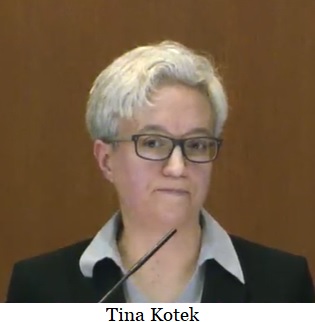

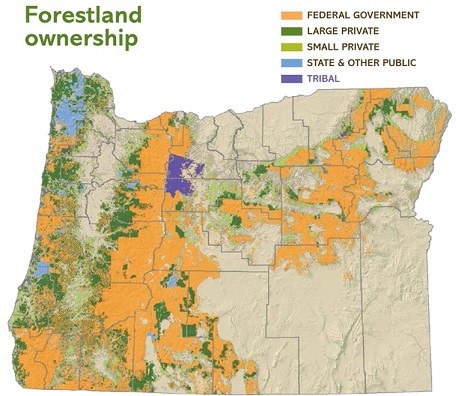






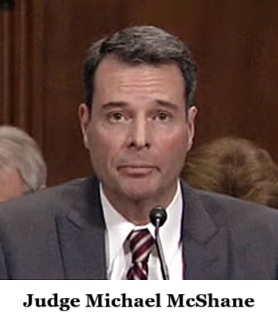
 Judicial Watch lawsuits and legal actions under the National Voter Registration Act (NVRA) have resulted in the removal of five million names from voter rolls in nearly a dozen states over the last several years.
Judicial Watch lawsuits and legal actions under the National Voter Registration Act (NVRA) have resulted in the removal of five million names from voter rolls in nearly a dozen states over the last several years.





